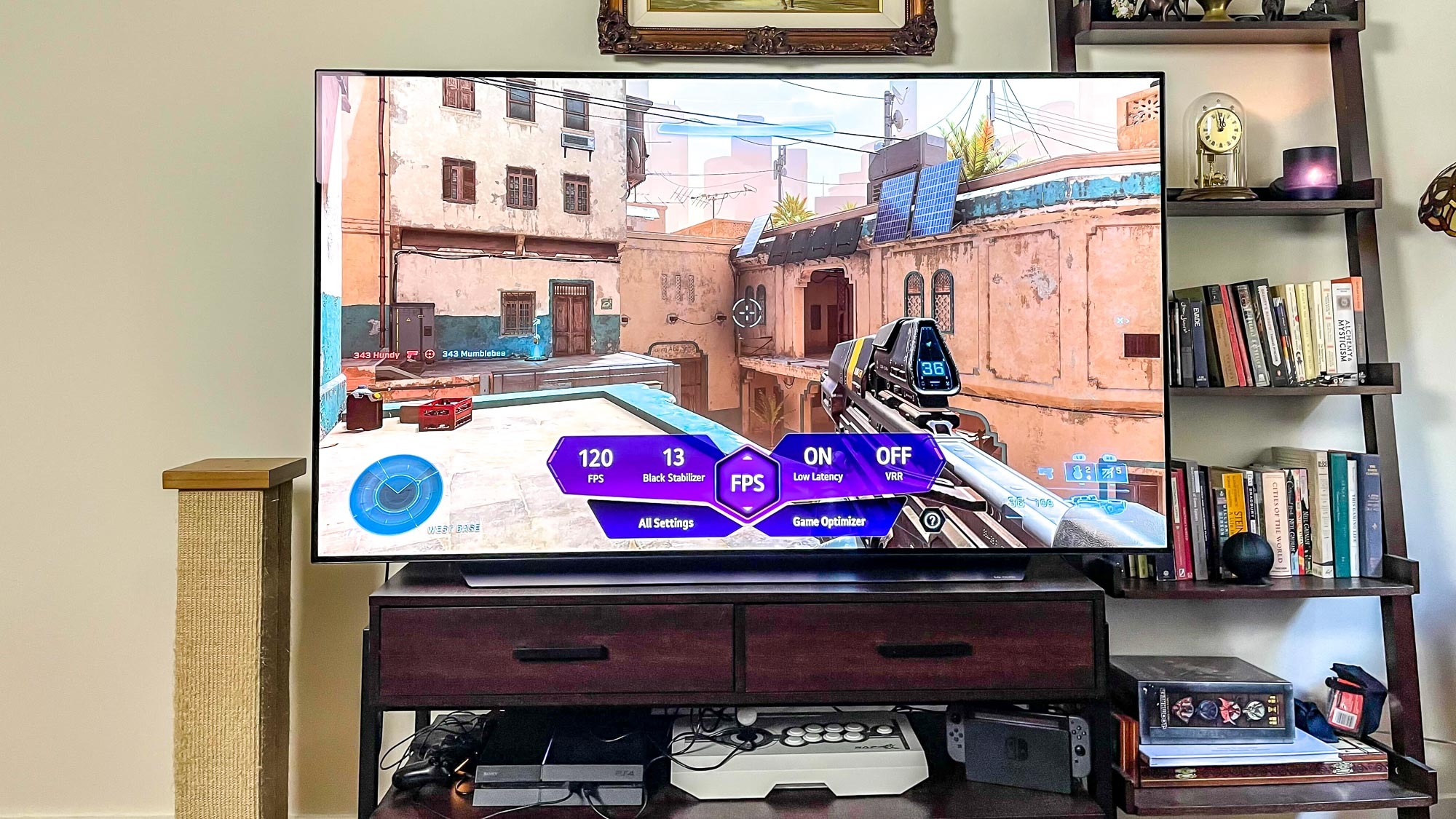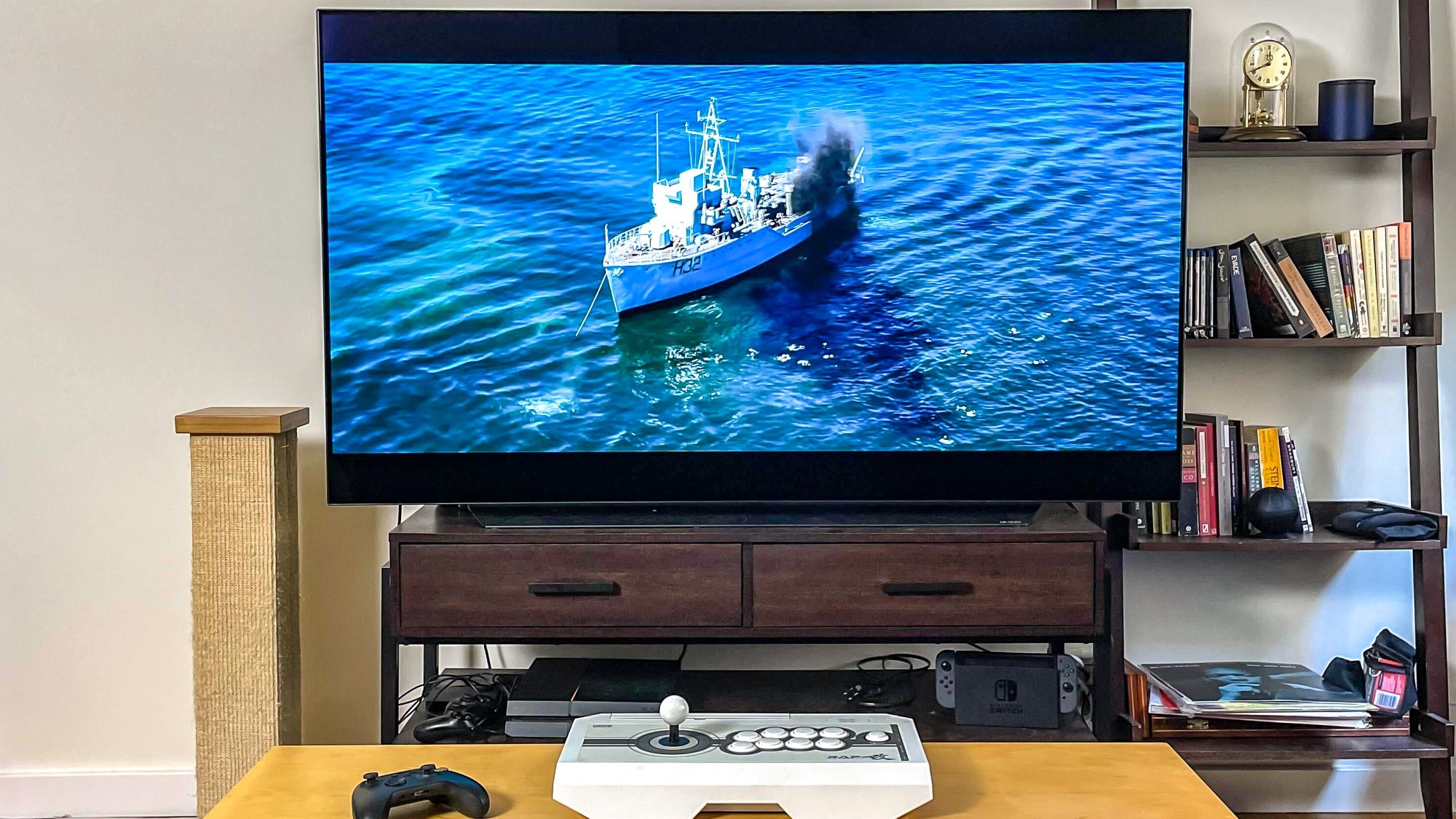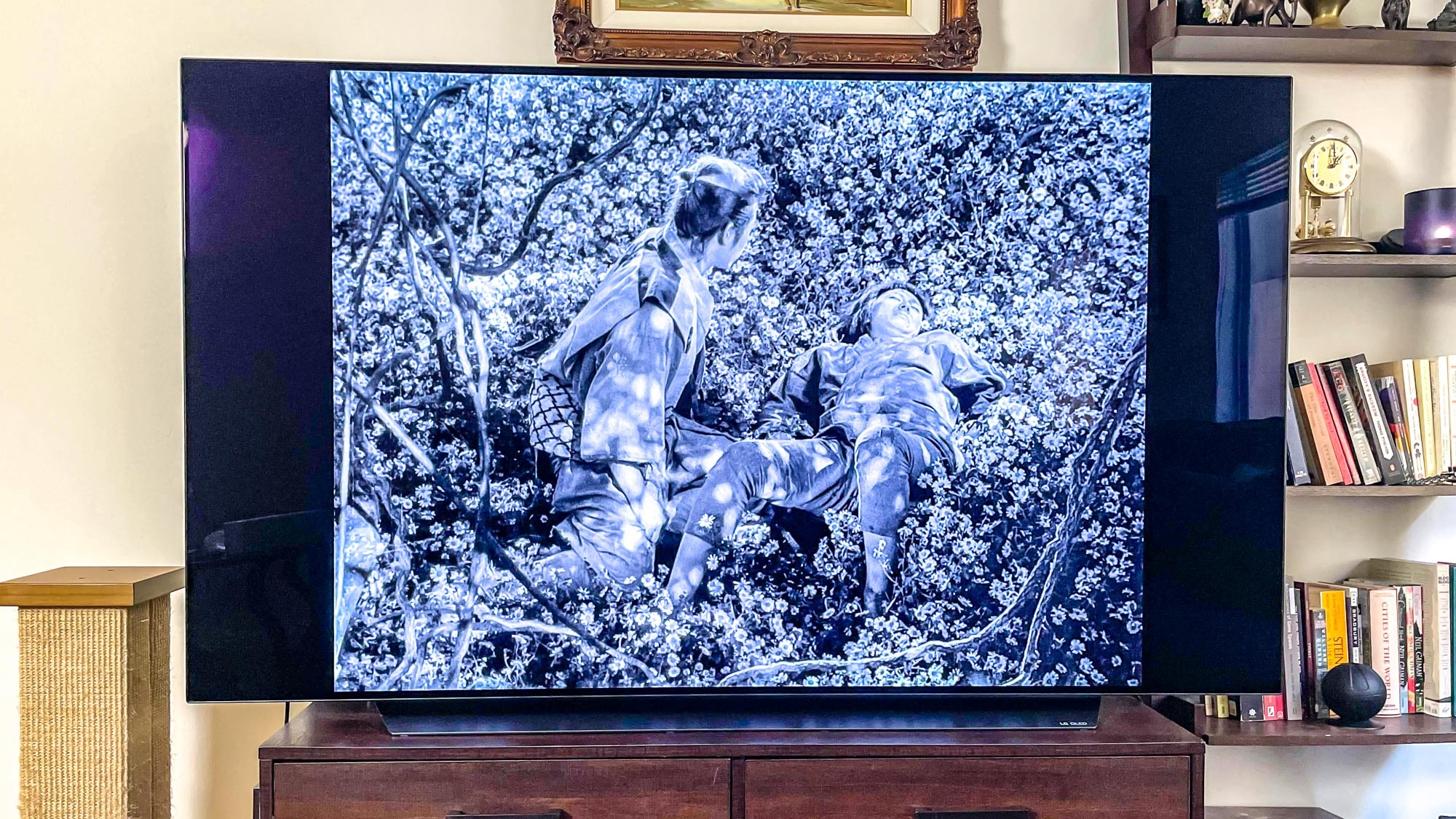This OLED TV is the best thing I bought all year — here's why
Now that I've upgraded to OLED, it'll be hard to go back

Let’s talk televisions. I want to tell you about a TV I bought a few months ago that ended up being the best purchase I made all year, bar none. It’s made everything from movies to games look way better, significantly improving the experience of sitting on my couch staring at a screen – and I’ve been doing an awful lot of that since COVID-19 showed up.
This is a big deal for me because I’m not a huge TV guy. Over the years I’ve slowly upgraded from SD to HD and then, eventually, to a 4K set, chiefly in pursuit of a better console gaming experience. It was a simple life, and a happy one, but if you’d asked me about my TV’s refresh rate, color accuracy, or input lag I’d have given you a blank stare. Heck, most of the time I forgot what size the TV was as soon as I threw away the box. All that mattered was that it displayed whatever I wanted to see at native resolution, and looked good doing it.
This year that all changed when I bought a 65-inch C1 OLED TV from LG. We’ve actually reviewed it here at Tom’s Guide, though I didn’t know that when I bought it, and in our LG C1 OLED review we called it one of the best OLED TVs of the year. We recommend it as one of the best LG TVs and best 4K gaming TVs you can buy, and with good reason: it delivers outstanding picture quality, even to my unsophisticated eyes.

We use phrases like “outstanding picture quality” pretty regularly around here because they’re clear, simple ways of describing how well (or not) a product works. But I want to do more than tell you how well this TV works: I want to help you understand why it matters. If you’ve been considering investing in an OLED TV I want you to know that it really is a meaningful improvement over an LED TV, one you'll appreciate every time you sit down to watch it.
Before I snagged my OLED I was using some $300 TCL 4K TV I bought from Best Buy hurriedly, years ago, because I had just moved into a new apartment and needed something to play Death Stranding on. And you know what? That 55-inch TCL was a real charmer. It was easy to set up, the built-in Roku interface was intuitive to use, and everything I watched on it looked good.
I still have it sitting in a corner of my apartment (you’d be surprised how hard it is to even give away a mid-sized 4K TV these days, given how cheap they’ve become – but maybe I just have a very well-equipped friend group) and honestly, if my LG crapped out tomorrow I’d have no qualms about swapping the TCL back in, at least until I found an OLED replacement. But I’d want that replacement, because now that I’ve gone OLED I don’t know that I’ll ever go back.

If you haven’t had the opportunity to spend some time with a good OLED display, please believe me when I tell you that it really does make a difference over non-OLED screens. The thing I noticed right away on my new TV was the way that light (in 4K HDR content, at least) suddenly looked a lot more natural and realistic than I’d ever seen it on a screen before. I presume this is in part because OLED displays can achieve much better contrasts than LED TVs, so it’s easier to see the contrast between shades of light and shadow.
That might sound like a small detail, but it's the sort of small detail that our eyes naturally discern when, say, watching the way sunlight falls across someone’s face. On my old TV, I never noticed these kinds of details because they always appeared homogenized, uniform; I could see that a character’s face was bathed in sunshine, but I couldn’t make out the different tones and brightness levels of sunlight as it moved across her face. On my OLED TV I can see those details, and it doesn’t feel like a fancy feature; it feels natural. It seems like something I should have been seeing the entire time, the way I do in real life, but haven’t – until now.
That’s not the only upside of investing in a ~$2,000 OLED TV, of course. The LG C1 is brighter and more vibrant than any TV I’ve owned. It sounds better, too. All four of its HDMI ports are HDMI 2.1, which means I can plug my Xbox Series X into any port I want without having to worry about whether advanced features like Dolby Vision at 120Hz will be supported. It has a simple Game Optimizer mode that makes doing things like enabling variable refresh rate seem pretty idiot-proof (for this idiot, at least). It has a great remote.

But it’s not all finely-gradated sunshine and roses, either. As much as I appreciate the LG C1’s remote, I really don’t like how easy it is to accidentally hit the button which switches it to what I call pointer mode, where you point the remote at the screen to move a cursor around and press a button to click on things. It’s easy enough to switch back to the classic mode of navigating by pressing buttons – you just have to press a different button – but I still wish pointer mode wasn’t a thing.
Also, the LG C1’s webOS interface is terrible compared to my old Roku TV. It’s twice as complicated to navigate yet offers maybe half the utility, as it’s cluttered with apps and widgets I didn’t ask for. That clutter is all the more frustrating because the LG app store doesn’t (yet) include apps for some of my favorite streaming services, including the Criterion Channel and Kanopy. It’s so bad I’m seriously considering spending more money on a Roku streaming stick to plug into my expensive new LG TV, just so I can have an easier time navigating to the services I actually want to watch.
As annoying as these minor missteps can be, I forget all about them as soon as I queue up a movie or load into a game. The LG C1 just looks so nice I can’t help but feel good about my buying decision every time I sit down in front of it, and that’s the lesson I hope you’ll take from this: investing in high-quality equipment pays dividends every time you use it, and if you (like me) use your TV on a daily basis, splurging on a nice OLED will pay off big-time.
And if you’re like me, you probably already have one in mind. I had my eye on the LG C1 for most of 2021, and I’d planned to hold off until at least Black Friday before I seriously considered buying one. But near the end of September I checked prices on a whim, and saw it discounted down to $1,800 from its $2,499 launch price. It was too good a deal to pass up. I jumped on it, spending all the money I’d been putting aside for a new laptop, and that TV ended up being the best thing I bought all year.
So if you’ve also been eyeing a new OLED TV for some time, let the lesson learned from my impulse buy embolden you: it really is worth it, and if you get a nice one that investment will pay off every time you use it.
If you’re considering buying a new C1 OLED, you don’t even have to wait for a sale to get the price I lucked into – LG appears to have dropped the price of a 65-inch C1 OLED to $1,800 permanently, presumably in advance of unveiling new models at CES in January. But even if that proves true, don’t let the promise of shiny new hardware on the horizon dissuade you from buying a C1 now, if you want it – it truly is the best TV I’ve ever owned, and the best thing I bought all year.
Sign up to get the BEST of Tom's Guide direct to your inbox.
Get instant access to breaking news, the hottest reviews, great deals and helpful tips.

Alex Wawro is a lifelong tech and games enthusiast with more than a decade of experience covering both for outlets like Game Developer, Black Hat, and PC World magazine. A lifelong PC builder, he currently serves as a senior editor at Tom's Guide covering all things computing, from laptops and desktops to keyboards and mice.
